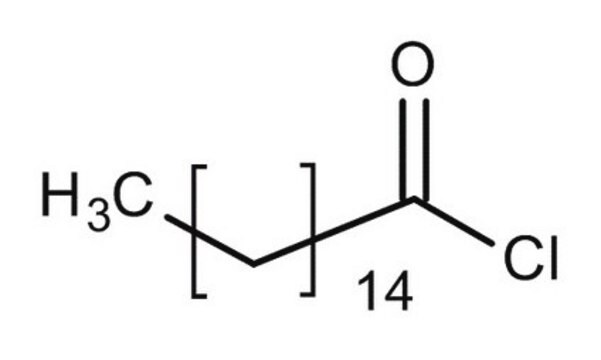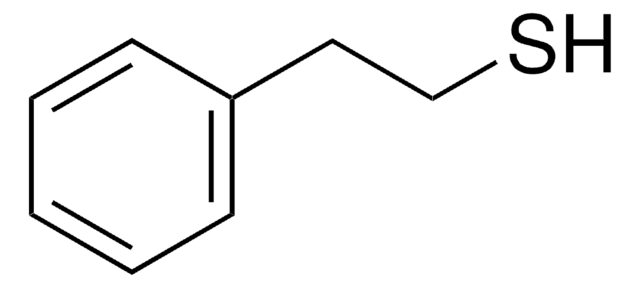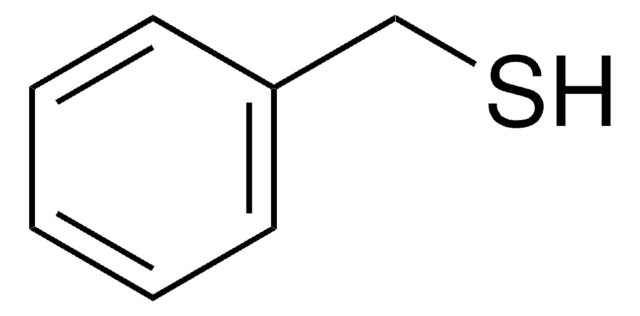306657
Heptadecanoyl chloride
98%
Synonym(s):
Margaroyl chloride
Sign Into View Organizational & Contract Pricing
All Photos(1)
About This Item
Linear Formula:
CH3(CH2)15COCl
CAS Number:
Molecular Weight:
288.90
Beilstein:
1781006
MDL number:
UNSPSC Code:
12352100
PubChem Substance ID:
NACRES:
NA.22
Recommended Products
Quality Level
Assay
98%
form
liquid
refractive index
n20/D 1.453 (lit.)
bp
176 °C/4 mmHg (lit.)
density
0.883 g/mL at 25 °C (lit.)
SMILES string
CCCCCCCCCCCCCCCCC(Cl)=O
InChI
1S/C17H33ClO/c1-2-3-4-5-6-7-8-9-10-11-12-13-14-15-16-17(18)19/h2-16H2,1H3
InChI key
ICDQUAGMQCUEMY-UHFFFAOYSA-N
Looking for similar products? Visit Product Comparison Guide
General description
Heptadecanoyl chloride reacts with 1-palmitoyl-2-oleoyl-sn-glycero-3-phosphoethanolamine to form 1-palmitoyl-2-oleoyl-N-heptadecanoyl phosphatidylethanolamine.
Application
Heptadecanoyl chloride was used in the synthesis of N-heptadecanoylethanolamine by reacting with ethanolamine.
Signal Word
Danger
Hazard Statements
Precautionary Statements
Hazard Classifications
Eye Dam. 1 - Skin Corr. 1B
Storage Class Code
8A - Combustible corrosive hazardous materials
WGK
WGK 3
Flash Point(F)
230.0 °F - closed cup
Flash Point(C)
110 °C - closed cup
Personal Protective Equipment
dust mask type N95 (US), Eyeshields, Gloves
Choose from one of the most recent versions:
Already Own This Product?
Find documentation for the products that you have recently purchased in the Document Library.
Customers Also Viewed
Saori Oka et al.
The Journal of biological chemistry, 280(18), 18488-18497 (2005-03-08)
2-Arachidonoylglycerol is an endogenous ligand for the cannabinoid receptors. Two types of cannabinoid receptors have been identified to date. The CB1 receptor is abundantly expressed in the brain, and assumed to be involved in the attenuation of neurotransmission. On the
Fabiana Piscitelli et al.
Nutrition & metabolism, 8(1), 51-51 (2011-07-14)
Omega-3 polyunsaturated fatty acids (ω-3-PUFA) are known to ameliorate several metabolic risk factors for cardiovascular disease, and an association between elevated peripheral levels of endogenous ligands of cannabinoid receptors (endocannabinoids) and the metabolic syndrome has been reported. We investigated the
Our team of scientists has experience in all areas of research including Life Science, Material Science, Chemical Synthesis, Chromatography, Analytical and many others.
Contact Technical Service








